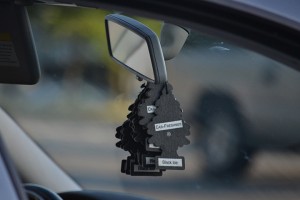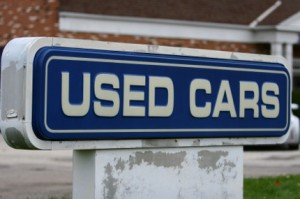 “The truth is always the truth, even if no one believes it.” This couldn’t be more true when it comes to car care. It’s time for a little reality check on car care myths. Here are some myths that can do more harm than good.
“The truth is always the truth, even if no one believes it.” This couldn’t be more true when it comes to car care. It’s time for a little reality check on car care myths. Here are some myths that can do more harm than good.
- Myth: If the brake fluid is low, topping it off will fix the problem.
- Reality: As brake pads wear, the level in the brake-fluid reservoir drops a bit. That helps you monitor brake wear. If the fluid level drops to or below the Low mark on the reservoir, then either your brakes are worn out or fluid is leaking. Either way, get the brake system serviced immediately. You should also get a routine brake inspection when you rotate the tires, about every 6,000 to 7,000 miles.
- Myth: If regular-grade fuel is good, premium must be better.
- Reality: Most vehicles run just fine on regular-grade fuel. Using premium in these cars won’t hurt, but it won’t improve performance, either. A higher-octane number simply means that the fuel is less prone to pre-ignition problems, so it’s often specified for hotter running, high-compression engines. So if your car is designed for 87-octane fuel, don’t waste money on premium.
- Myth: Flush the coolant with every oil change.
- Reality: Radiator coolant doesn’t need to be replaced that often. Most owner’s manuals recommend changing the coolant every five years or 60,000 miles. Of course, if the level in the coolant reservoir is chronically low, check for a leak and get service as soon as possible.
- Myth: After a jump-start, your car will soon recharge the battery.
- Reality: It could take hours of driving to restore a battery’s full charge, especially in the winter. That’s because power accessories, such as heated seats, draw so much electricity that in some cars the alternator has little left over to recharge a run-down battery. A “load test” at a service station can determine whether the battery can still hold a charge. If so, some hours on a battery charger might be needed to revive the battery to its full potential.
- Myth: Let your engine warm up for several minutes before driving.
- Reality: That might have been good advice for yesteryear’s cars but is less so today. Modern engines warm up more quickly when they’re driven. And the sooner they warm up, the sooner they reach maximum efficiency and deliver the best fuel economy and performance. But don’t rev the engine high over the first few miles while it’s warming up.
- Myth: A dealership must perform regular maintenance to keep your car’s factory warranty valid.
- Reality: As long as the maintenance items specified in the vehicle owner’s manual are performed on schedule the work can be done at any auto-repair shop. If you’re knowledgeable, you can even do the work yourself. Just keep accurate records and receipts to back you up in case of a warranty dispute on a future repair.
Hopefully this article from Consumer Reports sheds some light on the reality of car care rather than the myth.









